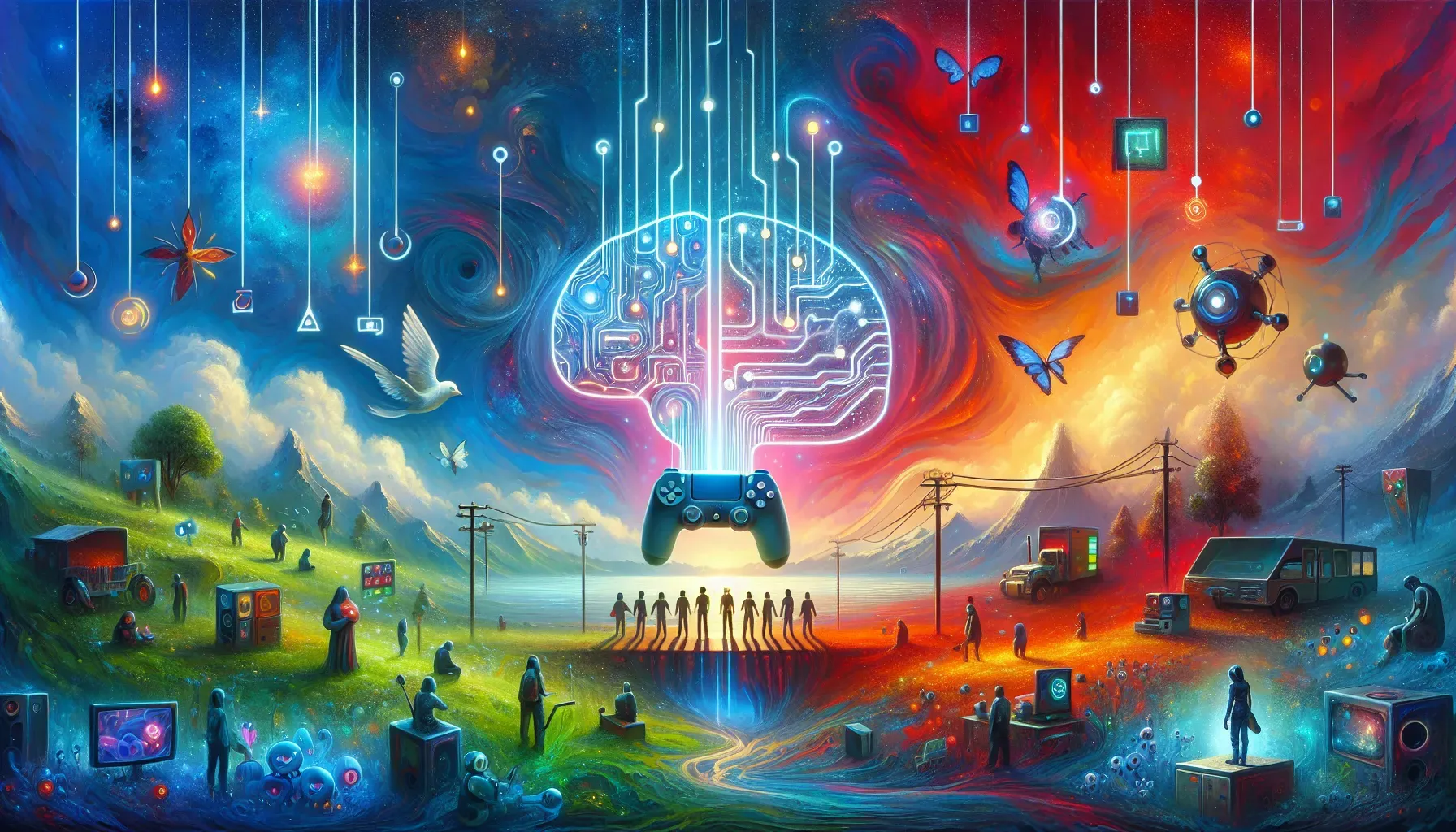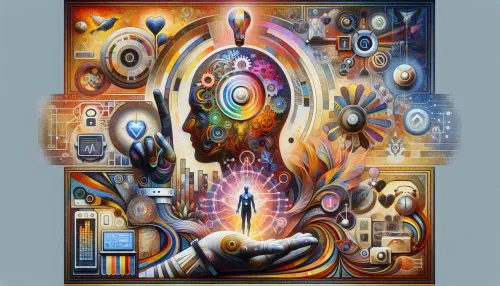Gaming Revolution in Autism Therapy and Developmental Support

Autism therapy and developmental support have witnessed a remarkable transformation with the integration of gaming approaches. From enhancing behavioral interventions to nurturing relationships and building life skills, gamification has emerged as a powerful tool in supporting autistic children. In this article, we delve into the gamified therapy sessions and their effectiveness, explore the social skill building through gaming challenges, understand the practical skill-building in immersive virtual environments, examine the fostering of inclusivity and acceptance through gaming communities, and finally, the enhancement of cognitive flexibility and problem-solving skills through gaming-based cognitive training programs.
Transforming Autism Therapy with Gaming Approaches
Gamified therapy sessions have revolutionized behavioral interventions for autistic children. By incorporating elements of game design into therapy, these sessions offer engaging and rewarding experiences that motivate children to actively participate in their treatment.
Gamified Therapy Sessions: Engaging Behavioral Interventions
One of the key advantages of gamified therapy sessions is the ability to tailor the activities to individual preferences and needs. Through interactive games and activities, therapists can effectively address specific behavioral challenges while keeping the children immersed in enjoyable experiences.
How gamified sessions enhance participation
Moreover, gamification introduces a sense of excitement and achievement, turning therapy sessions into dynamic and interactive experiences. Autistic children often respond positively to the structured yet entertaining nature of gamified interventions, leading to increased participation and progress in their developmental journey.
It's essential to recognize the transformative impact of gamified therapy sessions in supporting autistic children's developmental needs. Our holistic approach emphasizes the seamless integration of gaming elements into therapy to create an enriching environment tailored to each child's unique requirements.
Nurturing Social Skills through Gaming Challenges
Gaming challenges serve as an effective platform for nurturing social skills in autistic children. These challenges provide opportunities for children to engage with their peers in virtual environments, fostering communication, collaboration, and mutual understanding.
Related Article: Data-Driven Parenting: Leveraging Technology for Informed Decision-Making in Autism Care
What are the benefits of gaming challenges?
The structured nature of gaming challenges allows therapists to create scenarios that encourage social interaction and teamwork. Through collaborative gameplay and problem-solving activities, children learn to navigate social dynamics while actively participating in enjoyable experiences.
Furthermore, gaming challenges facilitate the development of crucial social skills such as turn-taking, sharing, and verbal/non-verbal communication. The interactive nature of these challenges encourages autistic children to engage with others in ways that promote relationship-building and empathy.
Developing key social skills in virtual environments
Emphasizing the significance of gaming challenges in cultivating social skills among autistic children. By creating purposeful gaming experiences that prioritize social interaction, we empower children to develop meaningful relationships while enjoying immersive and rewarding gameplay.
The gamification of life skills training offers a novel approach to practical skill-building for autistic individuals. Through immersive virtual environments, children can engage in simulated real-life scenarios that require them to apply various life skills in a safe and controlled setting.
Life Skills Training through Gamification
Gamified life skills training covers a wide range of essential abilities, including daily routines, self-care, time management, and decision-making. By integrating these skills into gaming scenarios, therapists can effectively reinforce practical learning while ensuring a positive and enriching experience for the participants.
Moreover, virtual environments provide a non-threatening space for children to practice and master essential life skills at their own pace. The interactive nature of gamified training fosters independence and confidence, empowering autistic individuals to transfer their acquired skills into real-world settings.
Related Article: Adaptive Technologies in Autism Care: Innovations from Urban Centers
How immersive environments support skill-building?
HorizonsMind is committed to utilizing gamification as a catalyst for practical skill-building in autistic children. Through our innovative approach to life skills training within immersive virtual environments, we strive to equip children with the confidence and competence necessary for self-sufficiency and personal growth.
Encouraging independence in daily life skills
Gaming communities play a pivotal role in fostering inclusivity and acceptance among autistic players. These communities provide a supportive environment where individuals with autism can engage with like-minded peers who share their passion for gaming.
The inclusive nature of gaming communities encourages social connections based on common interests rather than traditional social norms. As a result, autistic players have the opportunity to form authentic relationships within a space where their unique strengths and contributions are celebrated.
Fostering Inclusivity in Gaming Communities for Autistic Players
Additionally, gaming communities act as platforms for advocating neurodiversity awareness and understanding. By promoting acceptance and empathy within these communities, individuals with autism can experience a sense of belonging while enjoying meaningful social interactions centered around shared gaming experiences.
Why are gaming communities important for neurodiversity?
At HorizonsMind, we recognize the profound impact of inclusive gaming communities on the well-being of autistic players. Our commitment to fostering inclusivity and acceptance within these communities reflects our dedication to creating spaces where all individuals can thrive while engaging in their favorite games.
Gaming-based cognitive training programs have shown significant promise in enhancing cognitive flexibility and problem-solving skills among autistic individuals. These programs utilize innovative game mechanics and challenges designed to stimulate cognitive processes while maintaining an enjoyable gameplay experience.
The role of shared interests in building relationships
The dynamic nature of cognitive training games allows participants to practice critical thinking, pattern recognition, decision-making, and strategic planning within engaging virtual environments. By continuously adapting to individual skill levels and learning styles, these programs offer personalized cognitive enhancement tailored to each participant's needs.
Furthermore, gaming-based cognitive training fosters a positive attitude towards learning by framing cognitive challenges as exciting gameplay objectives. This approach promotes active engagement and persistence while developing essential cognitive abilities crucial for academic success and daily problem-solving tasks.
Cognitive Training Programs: Enhancing Problem-Solving Skills
HorizonsMind is at the forefront of developing gaming-based cognitive training programs that prioritize enhancing cognitive flexibility and problem-solving skills in autistic individuals. Our commitment to leveraging game-based interventions as powerful tools for cognitive development underscores our dedication to empowering autistic children with valuable cognitive capabilities.
Related Article: The Evolution of Speech Therapy: Harnessing Technology for Effective Communication Support in Autistic Children
How do gaming-based programs improve cognitive flexibility?
In conclusion, the integration of gamification has ushered in a new era of innovative approaches to autism therapy and developmental support. From gamified therapy sessions to gaming-based cognitive training programs, these initiatives have demonstrated compelling results in engaging autistic children while nurturing their diverse needs. As we continue to unravel the potential of gamification in supporting autistic individuals, it is evident that this revolutionary paradigm shift holds immense promise for enhancing their overall well-being and quality of life.
Frequently Asked Questions
Gamified therapy sessions integrate game design elements into autism therapy, creating engaging and rewarding experiences. These sessions motivate autistic children to participate actively in their treatment while addressing specific behavioral challenges tailored to their individual needs.
Gaming challenges provide structured opportunities for autistic children to engage with peers, fostering communication and collaboration. Through these challenges, children learn essential social skills like turn-taking and sharing while enjoying interactive gameplay that encourages relationship-building.
Gamification of life skills training covers essential abilities such as daily routines, self-care, time management, and decision-making. By simulating real-life scenarios in immersive virtual environments, children can practice these skills safely and effectively, boosting their confidence and independence.
Gaming communities foster inclusivity and acceptance among autistic players by providing a supportive environment where they can connect with like-minded peers. These communities promote social interactions based on shared interests, allowing individuals to form authentic relationships and advocate for neurodiversity.
Gaming-based cognitive training programs enhance cognitive flexibility and problem-solving skills in autistic individuals. By utilizing engaging game mechanics, these programs stimulate critical thinking and decision-making while adapting to each participant's skill level, promoting active engagement in learning.
Gamification transforms behavioral interventions by making them more engaging and enjoyable. It introduces excitement and achievement into therapy sessions, leading to increased participation from autistic children, which can significantly enhance their developmental progress in a fun environment.
Yes, gamified approaches can be customized to meet the unique preferences and needs of each child. Therapists can design interactive games that specifically address individual behavioral challenges, ensuring that therapy is both effective and enjoyable for the child.
HorizonsMind is committed to integrating gamification into autism therapy by developing innovative programs that enhance life skills, social interactions, and cognitive abilities. Their approach focuses on creating enriching experiences that empower autistic children towards personal growth and self-sufficiency.
Check Out These Related Articles

Virtual Reality (VR) Revolution: Transformative Impact on Social Skills Development for Autistic Children

Robotic Innovations Transcending Autism Support: Redefining Social Interaction and Skill Development

The Role of Wearable Tech in Enhancing Autism Support Services
